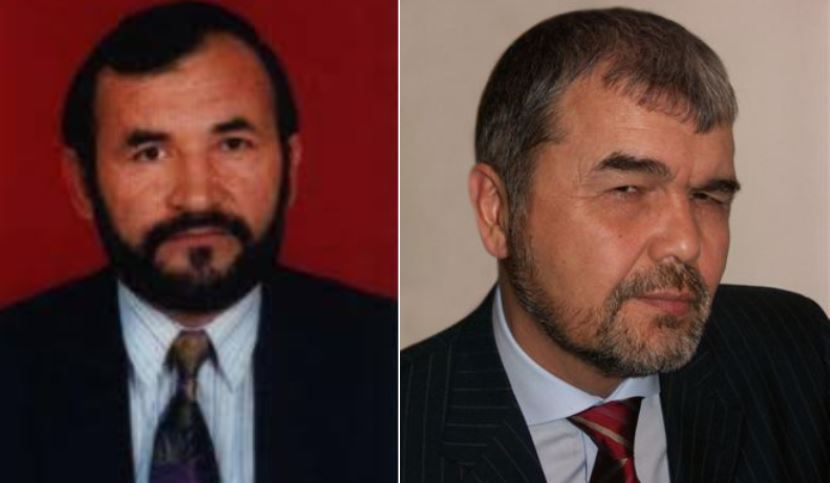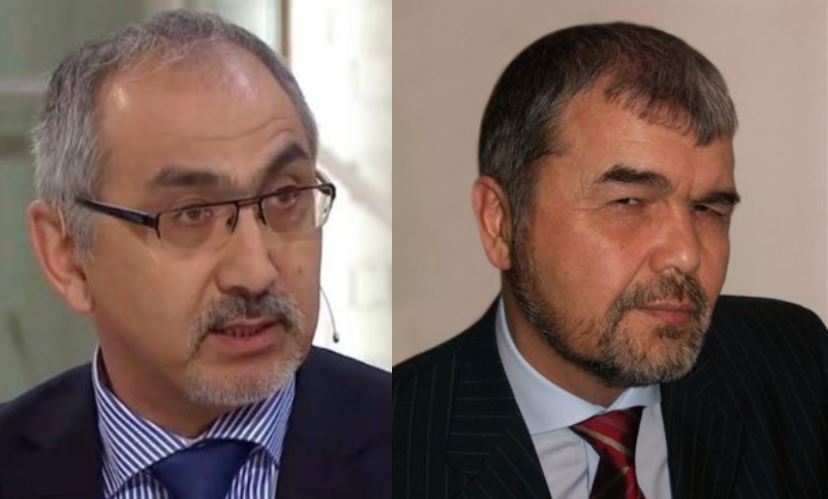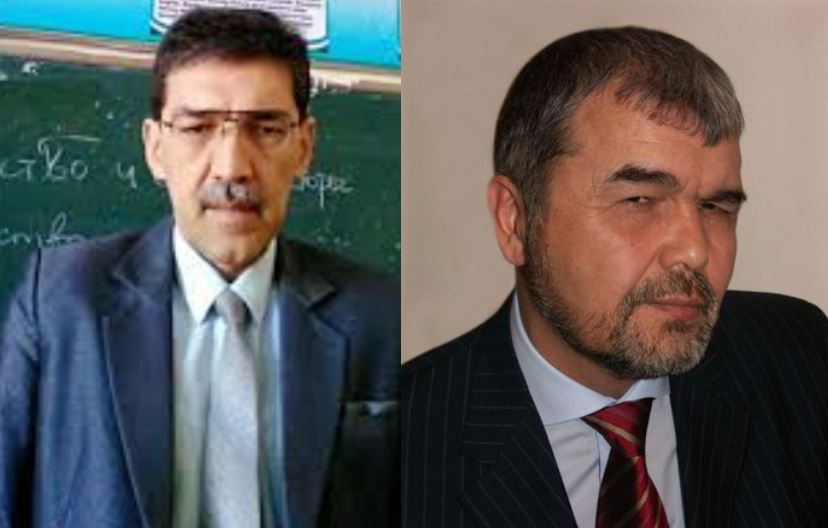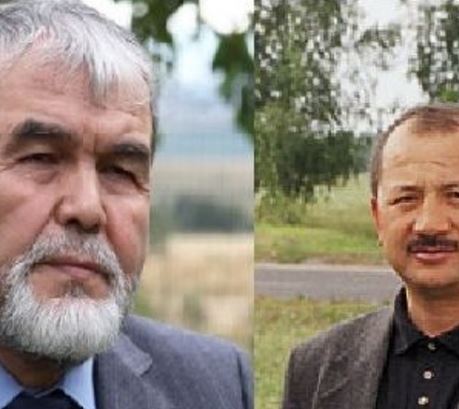It is well known that the human rights situation in Uzbekistan remains permanently critical. The task of human rights activists is not in attempting to avoid repetition of the already mentioned positions, but in stating of facts about the real situation and current trends.
Thus, during my speech, I’ll probably repeat points and positions that were mentioned by me and other human rights activists. Also, I will try to briefly analyze the behavior of the authorities and their response to criticism related to human rights.
It is known that during the whole period of independence of Uzbekistan, it is in this year the government is not forcing schoolchildren to pick cotton in cotton plantations. On the one hand, this can be seen as a positive result of the two decades long information and political action to protect children’s rights. However, we believe that it is still too early to celebrate.
The fact is that, not involving high school students, the authorities are forcing to pick cotton teachers of those schools, employees of budget organizations, students from colleges and universities. Even mothers, who receive child benefits, are sent to harvest cotton for 10 days. These women, fearing the state would stop giving assistance, had to leave their kids and go to pick cotton. Naturally, this is a violation of their rights, because the main motive behind their involvement is illegal levers of pressure – penalty of depriving of their stipends, salaries, benefits, education and employment.
Also, another factor of our restraint to celebrate the abolishment of child labor is that it may be associated with successful weather conditions in Uzbekistan. Weather and natural conditions this year for agriculture, especially cotton, were optimal. Perhaps it is for this reason the authorities did not consider it necessary to attract millions of high school students to cotton campaign.
This means that the practice of forced involvement of high school children in agricultural work can resume in the following years. It is largely due to the fact that the government is not implementing any reforms in the agricultural sector that would guarantee freedom of business and farming, concern the interests of peasants and farmers. And we will continue to closely monitor the situation with the forced child labor.
Another very complex and probably the most politicized problem – the issue of the rights and freedoms of believers in Uzbekistan. The practice of mass arrests of believers still continues. The only change about this situation is that in the last few years the authorities have changed the information policy, that is, they no longer cover the high-profile arrests of suspects of “religious extremism.”
The position of our international human rights organizations “Fiery Hearts Club” on this issue is that the Uzbek authorities are not fighting with the “religious extremists” as such, but their task is set much wider – the state is struggling with the level of religiosity among population.
This is the way the Uzbek authorities safeguard and protect “secular” state system. However, our organization is convinced that such policy of the authorities only discredits the secular state model, creates the basis for the historically dangerous distrust of public towards the state.
Given that 99% of population is believers, and 89% of them are Muslims, the Uzbek government’s repressive policies against religiously active population in any case should not be considered as an “internal affair” of Uzbekistan. This dangerous issue must be measured through the lens of human rights and regional security.
The situation in Uzbekistan stands out as particularly complex and contradictory. What are these contradictions?
First, when it comes to issues of human rights, liberalization of social and political life and democratic reforms, the Uzbek authorities have consistently pointed out that the government is taking real steps. As actual examples, the authorities have always, without exception, talked about the adopted new laws. The Uzbek government claims that the revision of legislation is being made to strengthen the liberalization and protect human rights.
For example, in November 2010, president Islam Karimov initiated the adoption of new laws and changing 30 old ones. As a result, a number of laws were adopted in 2011. All these laws were designed to regulate the media, small and medium businesses, public control and non-governmental organizations and other sectors of public life.
Indeed, it must be acknowledged that the Uzbek government is updating the legislation. Authorities are adopting and changing a number of new laws aimed at the liberalization of social and political life, laws that recognize the importance of human rights.
However, the practice of acting with adopting new laws has been going on for two decades. Unfortunately, such actions do not have a positive impact on real situation. It is exactly the opposite. There are numerous indicators that show that with the adoption of new laws the public is not forming an opinion about the priority of human rights and the legal behavior of the state.
The main problem in the political and legal system of Uzbekistan is not in shortage of legal norms, but in actual implementation of the existing laws.
Second, even in passing laws the Uzbek authorities are extremely inconsistent. Here we face three problems:
First – neglecting the laws that are aimed at the public control over the authorities, at ensuring real rights and freedoms, especially political rights.
Second – increased, even forced and rough enforcement of existing laws aimed to control the processes taking place in society. These laws are vigorously carried out by the authorities as they help them to control the society.
Third – along with their proven habit not to observe the laws, the Uzbek authorities consistently avoid adopting the most important laws, which would form the foundation of the rule of law and civil society in the country. For example, the largest organization in Uzbekistan is the police, and the Ministry of Interior is the most powerful government institution.
We should not also forget about the National Security Service. These power structures are the two hands of the repressive state system. However, this may seem absurd, but Uzbekistan does not still have a law neither on police, nor on the National Security Service. In other words, the activities of the security services and law enforcement agencies are out of law.
Thus, when the government of Uzbekistan boasts with new legislation, we urge the public to pay attention to how these laws are implemented, how these laws actually affect people’s consciousness, and why the authorities have so selective approach in adopting new laws.
Also, I would like to briefly talk on the policy of Western countries concerning the human rights in Uzbekistan. Uzbekistan is often viewed with different eyes. Western governments are looking with the eyes of geopolitics and regional security. We are concerned about the real situation and we measure the behavior of Uzbekistani authorities through the criteria of rights and freedoms. We are not against the Western states’ aims to ensure regional security involving Uzbekistan. On the contrary, we recognize the usefulness of the interpenetration of interests of Western countries and Uzbekistan.
However, we are convinced that the systematic, widespread and grave violations of human rights in Uzbekistan have great potential to create other problems of national and regional issues. We believe that in the dialogue with the government of Uzbekistan Western democracies are limiting themselves with rhetorical positions, and are not using their real capabilities to convince the official Tashkent. Unfortunately, it seems to us that the Western countries are not showing a real commitment to human rights in Uzbekistan.
International human rights organization “Fiery Hearts Club” wants to draw public attention to the following points.
First, Uzbekistan is on the threshold of change of power. President Islam Karimov is now 74 years old, and in the next presidential elections that will take place in 2015 he will be over 77. This means the Western states and international organizations should be consistent in their statements and positions on human rights. New political elite of Uzbekistan should not come to the conclusion that systematic violations of human rights can be “swallowed” by the West.
Second, in recent years we are again observing the West’s geopolitical rapprochement with Uzbekistan. This should be considered as an opportunity for real and peaceful regime transition towards a gradual and stable democracy.
Third, I want to draw attention on a particularly important issue – it concerns thousands of prisoners, active Muslim people, imprisoned on religious and political grounds. It seems impossible to change the thinking and behavior of present and possible future government of Uzbekistan on guaranteeing equal freedom of conscience and security in the country without the participation of international organizations and democratic countries. Thousands of political prisoners are one of the worst legacies of Islam Karimov. Authorities do not yet know how to solve this problem. Along with this, they do not want to understand the most basic needs of Muslim population of Uzbekistan.
Fourth, despite the Uzbek government’s continuous capriciousness, the real and sustained pressure has always reached its targets. Many, including me, were freed from prisons under the pressure from the international community. But there are still many rights defenders kept in prisons in Uzbekistan. You can learn about them in the web application entitled “Prison called Uzbekistan», created by the International Federation for Human Rights http://www.fidh.org/2011_UZ/en/.
The application has information about those human rights activists, who are still in detention in prisons in Uzbekistan, where conditions are intolerable. They have to spend their lives surrounded by walls of dark concrete and iron only because they believed in the values of human rights and democracy.
They all are innocent people. There is no civil society inside Uzbekistan, who would fight for their freedom. And unfortunately, we cannot expect a sudden change in the consciousness of the government. Therefore, we have only one hope – international organizations and democratic countries.
Fifth, in recent years the situation of asylum seekers in Europe has been worsening. Norway, unfortunately, is no exception. There were times when even our organization’s activists were threatened with deportation to Uzbekistan. Working on this issue, we look forward to trustful and fruitful cooperation with the relevant organizations of countries, where our fellow compatriots are coming to seek asylum.
The next five years will be very important for Uzbekistan. The inevitable change of power will result in burst of problems hidden within society. And we must be ready to this!
Discussion topic of Mutabar Tadjibayeva,
head of International human rights organization
“Fiery Hearts Club”, at Helsinki Committee.
Oslo/Norway. 15 November 2012.





